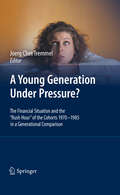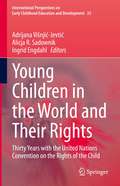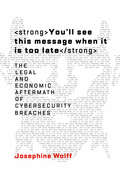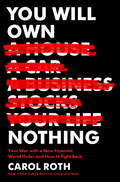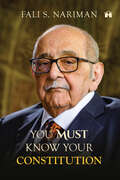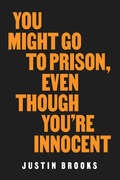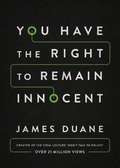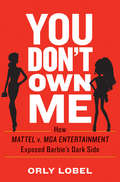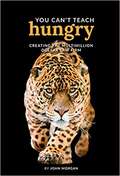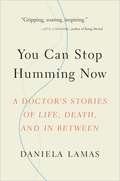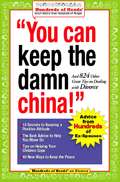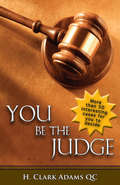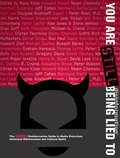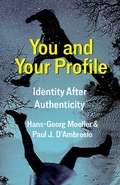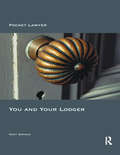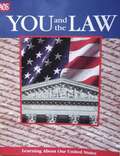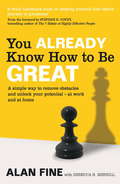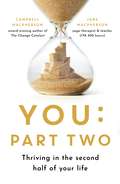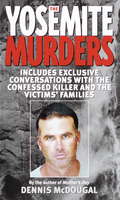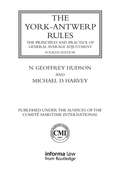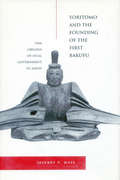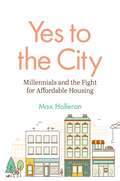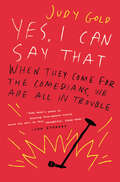- Table View
- List View
A Young Generation Under Pressure?: The Financial Situation and the "Rush Hour" of the Cohorts 1970 - 1985 in a Generational Comparison
by Joerg TremmelJustice between generations is still not as prominent on any agenda as justice between rich and poor or men and women. For the first time, this three-part book explores the situation of young people of today in comparison to their direct predecessors. The first part, The Financial Situation of the Young Generation in a Generational Comparison, deals with this generation's financial standing; the second part, The Rush Hour of Life, examines their time restrictions. Both are considered from a life-course perspective. The third part, On the Path to Gerontocracy?, addresses the demographic shift in favor of the elderly in aging Western democracies.
Young Children in the World and Their Rights: Thirty Years with the United Nations Convention on the Rights of the Child (International Perspectives on Early Childhood Education and Development #35)
by Adrijana Višnjić-Jevtić Alicja R. Sadownik Ingrid EngdahlThis book provides different perspectives on the concept of children’s rights, including policy, educational, and children’s perspectives. It examines how the crucial ideas of the Convention on the Rights of the Child are respected and implemented in 14 countries in five regions of the world. It looks at early childhood education, children’s participatory rights, and at how these rights are promoted and guaranteed in different countries. It explores the professional practice of education and its complexities, challenges and dilemmas, as well as the role of play, and of listening and participation. The book advocates children’s rights today, arguing for its vital importance, in the best interests of the children. In doing so, it furthers the understanding of children’s rights and spreads knowledge about the Convention, as a means of celebrating its 30th anniversary. The UN Convention on the Rights of the Child (UNCRC) comprises the potential to change the lives of children to the very best. It may exalt children from the position of marginalized citizens to the centre of policies all over the world. Even though the concept of children’s rights is omnipresent, the respect for children’s rights must be discussed. While the Convention brings the new perspective of children as citizens to the world, there are still challenges in its application. The book interrogates challenges in understanding and applying children rights and offers possible answers to these challenges. The ratification process itself, does not guarantee that children’s rights are respected. While all adults should take responsibility for implementing the UNCRC in everyday life, Early Childhood Education should give opportunities for children to learn and live their rights.
You'll See This Message When It Is Too Late: The Legal and Economic Aftermath of Cybersecurity Breaches (Information Policy)
by Josephine WolffWhat we can learn from the aftermath of cybersecurity breaches and how we can do a better job protecting online data. Cybersecurity incidents make the news with startling regularity. Each breach—the theft of 145.5 million Americans' information from Equifax, for example, or the Russian government's theft of National Security Agency documents, or the Sony Pictures data dump—makes headlines, inspires panic, instigates lawsuits, and is then forgotten. The cycle of alarm and amnesia continues with the next attack, and the one after that. In this book, cybersecurity expert Josephine Wolff argues that we shouldn't forget about these incidents, we should investigate their trajectory, from technology flaws to reparations for harm done to their impact on future security measures. We can learn valuable lessons in the aftermath of cybersecurity breaches. Wolff describes a series of significant cybersecurity incidents between 2005 and 2015, mapping the entire life cycle of each breach in order to identify opportunities for defensive intervention. She outlines three types of motives underlying these attacks—financial gain, espionage, and public humiliation of the victims—that have remained consistent through a decade of cyberattacks, offers examples of each, and analyzes the emergence of different attack patterns. The enormous TJX breach in 2006, for instance, set the pattern for a series of payment card fraud incidents that led to identity fraud and extortion; the Chinese army conducted cyberespionage campaigns directed at U.S.-based companies from 2006 to 2014, sparking debate about the distinction between economic and political espionage; and the 2014 breach of the Ashley Madison website was aimed at reputations rather than bank accounts.
You Will Own Nothing: Your War with a New Financial World Order and How to Fight Back
by Carol RothThe New York Times bestselling author and entrepreneur investigates what would happen if a new financial world order took hold, one in which global elites own everything and you own nothing—and yet you are somehow happy. When Carol Roth first heard that one of the World Economic Forum’s predictions for 2030 was “You will own nothing, and be happy,” she thought it was an outlandish fantasy. Then, she researched it. What she found was that a number of businesses, governments, and global elites share a vision of a future that sounds utopian: Everyone will have everything they need, and no one will own anything.From declines in home and vehicle ownership to global inflation and government spending, many of the trends of modern life reveal that a new world that is emerging—one in which Western citizens, by choice or by circumstance, increasingly do not own possessions or accumulate wealth. It’s the perfect economic environment for the rich and powerful to solidify their positions and prevent anyone else from getting ahead.In You Will Own Nothing¸ Roth reveals how the agendas of Wall Street, world governments, international organizations, socialist activists, and multinational corporations like Blackrock all work together to reduce the power of the dollar and prevent millions of Americans from taking control of their wealth. She shows why owning fewer assets makes you poorer and less free. This book is essential guide to protecting your hard-earned wealth for the coming generations.
You Must Know Your Constitution
by Fali S. Nariman26 November 1949 marks the date when the longest constitution in the world was formally adopted to guide the largest democracy in the world. It effectively transformed the British Dominion of India into one nation—the independent Republic of India. The supreme law of the land set forth the workings of Indian democracy and polity, and its provisions aimed to secure justice, liberty, equality, and fraternity for the people of India. As drafted and as conceived, the constitution makes provision for a functioning democracy and not an electoral autocracy, and this is how it has to be worked. It is therefore imperative for all citizens to familiarise themselves with its provisions.In this definitive tome, the author (who commenced his legal practice in the year the constitution was enacted) presents his comments in a style that is comprehensive, lucid, and systematic. The book traces the history and the origins of India&’s document of governance and explains its provisions. Some of the salient features of the book include:• An educative and informative exposition of the different parts of the Indian Constitution, including a bird&’s-eye view of—and with comments on—all the three hundred and ninety-five articles of the constitution and additions made by constitutional amendments.• Provides references of critical cases and prominent constitutional developments up to 31 July 2023.• Insightfully describes the structure, powers, and directive principles of government institutions.• Contains updated judicial pronouncements and legislative and constitutional amendments.In essence, You Must Know Your Constitution is an immensely readable and insightful compendium, inter alia, for judiciary aspirants, academicians, legal and administrative authorities, policymakers, research scholars, and students as well as for general readers who are interested in exploring the manifold facets of India&’s core document of governance.
You Might Go to Prison, Even Though You're Innocent
by Justin BrooksSurviving prison as an innocent person is a surreal nightmare no one wants to think about. But it can happen to you. Justin Brooks has spent his career freeing innocent people from prison. With You Might Go to Prison, Even Though You're Innocent, he offers up-close accounts of the cases he has fought, embedding them within a larger landscape of innocence claims and robust research on what we know about the causes of wrongful convictions. Putting readers at the defense table, this book forces us to consider how any of us might be swept up in the system, whether we hired a bad lawyer, bear a slight resemblance to someone else in the world, or are not good with awkward silence. The stories of Brooks's cases and clients paint the picture of a broken justice system, one where innocence is no protection from incarceration or even the death penalty. Simultaneously relatable and disturbing, You Might Go to Prison, Even Though You're Innocent is essential reading for anyone who wants to better understand how injustice is served by our system.
You Have the Right to Remain Innocent: What Police Officers Tell Their Children about the Fifth Amendment
by James DuaneLaw professor James J. Duane became a viral sensation thanks to a 2008 lecture outlining the reasons why you should never agree to answer questions from the police—especially if you are innocent and wish to stay out of trouble with the law. In this timely, relevant, and pragmatic new book, he expands on that presentation, offering a vigorous defense of every citizen’s constitutionally protected right to avoid self-incrimination. Getting a lawyer is not only the best policy, Professor Duane argues, it’s also the advice law-enforcement professionals give their own kids.
You Don't Own Me: How Mattel v. MGA Entertainment Exposed Barbie's Dark Side
by Orly LobelThe battle between Mattel, the makers of the iconic Barbie doll, and MGA, the company that created the Bratz dolls, was not just a war over best-selling toys, but a war over who owns ideas. When Carter Bryant began designing what would become the billion-dollar line of Bratz dolls, he was taking time off from his job at Mattel, where he designed outfits for Barbie. Later, back at Mattel, he sold his concept for Bratz to rival company MGA. Law professor Orly Lobel reveals the colorful story behind the ensuing decade-long court battle. This entertaining and provocative work pits audacious MGA against behemoth Mattel, shows how an idea turns into a product, and explores the two different versions of womanhood, represented by traditional all-American Barbie and her defiant, anti-establishment rival—the only doll to come close to outselling her. In an era when workers may be asked to sign contracts granting their employers the rights to and income resulting from their ideas—whether conceived during work hours or on their own time—Lobel’s deeply researched story is a riveting and thought-provoking contribution to the contentious debate over creativity and intellectual property.
You Can't Teach Hungry: Creating The Mutlimillion-dollar Law Firm
by John MorganThis book is the ultimate guide to building the multimillion-dollar law firm. In You Can't Teach Hungry, John Morgan shares his secrets, laying out a chapter-by-chapter road map to a sustainable legal practice. Morgan takes you through his earliest life lessons and combines them with practical advice he's gained from twenty-eight years of experience practicing law. You will see the inside workings of his business strategies, marketing plans, and the tools that Morgan uses to evaluate his firm and staff. You Can't Teach Hungry guides you through the steps to take a thorough inventory that will allow you to make hard decisions to improve and grow your law firm. Morgan walks you through proven practice pointers covering employees, management, case handling, and advertising, recommending steps to best prepare for adverse eventualities-such as diversifying your practice and having contingency plans in place. This book forces you to ask the tough questions about yourself and your practice-and the answers will amaze and motivate you. If you are starting your own firm, or are a partner in a small firm, this book is a must read. You Can't Teach Hungry shows you how to grow your practice with easy to use tools and techniques. It will change your practice and change your life. Accompanying the book are downloadable forms and templates that Morgan recommends to help manage your law practice.m
You Can Stop Humming Now: A Doctor's Stories of Life, Death, and in Between
by Daniela LamasA critical care doctor's breathtaking stories about what it means to be saved by modern medicineModern medicine is a world that glimmers with new technology and cutting-edge research. To the public eye, medical stories often begin with sirens and flashing lights and culminate in survival or death. But these are only the most visible narratives. As a critical care doctor treating people at their sickest, Daniela Lamas is fascinated by a different story: what comes after for those whose lives are extended by days, months, or years as a result of our treatments and technologies?In You Can Stop Humming Now, Lamas explores the complex answers to this question through intimate accounts of patients and their families. A grandfather whose failing heart has been replaced by a battery-operated pump; a salesman who found himself a kidney donor on social media; a college student who survived a near fatal overdose and returned home, alive but not the same; and a young woman navigating an adulthood she never thought she'd live to see -- these moving narratives paint a detailed picture of the fragile border between sickness and health.Riveting, gorgeously told, and deeply personal, You Can Stop Humming Now is a compassionate, uncompromising look at the choices and realities that many of us, and our families, may one day face.
You Can Keep the Damn China!
by Robert J. Nachsin Jennifer Bright ReichAlmost 50% of American marriages end in divorce, so it stands to reason that most people have experienced the effects of divorce in some way. Breaking up is hard to do, but that rocky road can be smoothed with this guide featuring contributions by hundreds of former spouses who've made it out in one piece. Eye-opening stories and advice cover getting through the initial tough times; how to break the news to your children and help them cope; dealing with bitter in-laws and other family members; legal wrangling and dividing your stuff; maintaining a relationship with your ex (is it possible?); and more.
You Be the Judge
by H. Clark AdamsH. Clark Adams let you be the judge on 60 cases that he’s already made his decisions on in the legal arena of small claims court. It’s enough to put you off wedded bliss forever, but if you did harbour strong opinions on how the case Smith v Brown a couple on the brink of matrimony, interfering relatives notwithstanding should unfold, H. Clark Adams welcomes you to the legal arena of small claims court. Here feuding former lovers, despondent homeowners, and singed shopkeepers bring their grievances against their erstwhile partners in love and business for a ruling that could end the troubled relationship and maybe even offer them material or monetary comfort. In a tone that’s distinctly light-hearted, the retired deputy judge offers readers a fictionalized sampling of the cases presented at small claims court, and the chance for them to pit their best instincts and powers of judgment against his. Part I of the book is a collection of cases from the gripping to the ridiculous, whilePart II features Adams’s decisions on the cases presented. If your view on these 60 cases differs from the learned judge, be warned: no appeal to his decision has ever been successful.
You Are Still Being Lied To: The New Disinformation Guide to Media Distortion, Historical Whitewashes and Cultural Myths (Disinformation Books)
by Russ KickA must-have revised and expanded edition of The Disinformation Companys classic anthology, You Are STILL Being Lied To contains more than a dozen all-new essays from contributors like Norman Solomon, Graham Hancock, Alex Jones, John Major Jenkins, Robert Bauval, Richard DeGrandpre, Alexandra Bruce,John Hogue, Gregory Davis, and Scott Creighton on topics ranging from the misleading marketing of antidepressants to the truth about the North American Union, from media consolidation to the New Thought movement.Editor Russ Kicks massive collection acts as a battering ram against the distortions, myths, and outright lies that have been shoved down our throats by the government, the media, corporations, organized religion, the scientific establishment, and others who want to keep the truth from us.An unprecedented group of researchers including Howard Zinn, Noam Chomsky, Howard Bloom, Sydney Schanberg, Michael Parenti, Riane Eisler, Jim Marrs, and many, many others paint a picture of a world where crucial stories are ignored or actively suppressed and the official version of events has more holes in it than Swiss cheese. A world where real dangers are downplayed and nonexistent dangers are trumpeted. In short, a world where you are being lied to.
You and Your Profile: Identity After Authenticity
by Hans-Georg Moeller Paul J. D'AmbrosioMore and more, we present ourselves and encounter others through profiles. A profile shows us not as we are seen directly but how we are perceived by a broader public. As we observe how others observe us, we calibrate our self-presentation accordingly. Profile-based identity is evident everywhere from pop culture to politics, marketing to morality. But all too often critics simply denounce this alleged superficiality in defense of some supposedly pure ideal of authentic or sincere expression.This book argues that the profile marks an epochal shift in our concept of identity and demonstrates why that matters. You and Your Profile blends social theory, philosophy, and cultural critique to unfold an exploration of the way we have come to experience the world. Instead of polemicizing against the profile, Hans-Georg Moeller and Paul J. D’Ambrosio outline how it works, how we readily apply it in our daily lives, and how it shapes our values—personally, economically, and ethically. They develop a practical vocabulary of life in the digital age. Informed by the Daoist tradition, they suggest strategies for handling the pressure of social media by distancing oneself from one’s public face. A deft and wide-ranging consideration of our era’s identity crisis, this book provides vital clues on how to stay sane in a time of proliferating profiles.
You and Your Lodger
by Rosy BorderThis book provides lodger agreement in a 'what you see is what you get' document format. It sets out the duties and responsibilities and embodies them in an agreement that is fair to both public and their lodger. It shows you the terms or 'buzzwords', that are important, and explains what they mean.
You and the Law
by A. G. S. SecondaryHelp your students understand important aspects of the United States. These six worktexts combine easy-to-read information with summaries, exercises, and activities. Worktexts cover the following topics: Economics, Geography of the United States, United States Citizenship, Exploring American History, You and the Law, & Learning About Government. Reading Level: 3-4 Interest Level: 6-12
You Already Know How To Be Great: A simple way to remove interference and unlock your potential - at work and at home
by Alan Fine Rebecca R. MerrillAccording to Alan Fine, every one of us has the capacity for greatness. So what is it that's stopping us from reaching our true potential? The answer: too much information.Most people who want to get better at hitting golf shots, negotiating with clients, delivering presentations, or any field of endeavour - seek out new information. They read a book, take a class, employ an expert tutor. But as Alan Fine has learned from many years of coaching athletes and businesspeople, this 'outside-in' approach often doesn't produce the results people want. More information becomes a distraction rather than a solution, and high performance remains elusive. Fortunately, there is a better way. Fine has developed and honed a unique 'inside-out' approach to performance improvement which is not about gaining new knowledge, but instead about using the knowledge you already have. Through a simple four-step process, Fine shows how to remove the obstacles that get in the way of applying your existing skills to unlock your natural potential. No matter who you are or what you do, this book will help you get better.
You: Thriving in the Second Half of Your Life
by Campbell Macpherson Jane MacphersonThose of us in midlife are facing a dilemma: We are going through a period of multiple life-altering changes all at the same time - at work, at home and within. More of us are being made redundant than ever before, just when we need it the least. More of us are becoming self-employed. More of us are experiencing losses of status and crises of self-confidence - and that was before COVID-19! Our relationships with our partners, our parents and our children are all entering new phases. Meanwhile, half of us are also going through the menopause. Yet we are healthier and more vibrant than previous generations - and we are living longer. Much longer. We are 50 years young, not 50 years old.But more importantly, we don't know where or who to turn to for help. If the thought of consulting a 'life coach' makes you twitch involuntarily, but you want more than impenetrable financial advice from an IFA - this book is for you. Award-winning author Campbell Macpherson and yoga therapist co-author Jane Macpherson will help you embrace these changes and come out on top. From dealing with seemingly ubiquitous ageism and starting your own business to building resilience, finding a financial adviser you can trust and learning from professional athletes who are forced to 'retire' in their early thirties, the Macphersons show that your 'Part Two' isn't about retirement or ageing; it's about change and how you turn it to your advantage. You: Part Two is the must-read guide to thriving in the second half of your life.
You: Thriving in the Second Half of Your Life
by Campbell Macpherson Jane MacphersonThose of us in midlife are facing a dilemma: We are going through a period of multiple life-altering changes all at the same time - at work, at home and within. More of us are being made redundant than ever before, just when we need it the least. More of us are becoming self-employed. More of us are experiencing losses of status and crises of self-confidence - and that was before COVID-19! Our relationships with our partners, our parents and our children are all entering new phases. Meanwhile, half of us are also going through the menopause. Yet we are healthier and more vibrant than previous generations - and we are living longer. Much longer. We are 50 years young, not 50 years old.But more importantly, we don't know where or who to turn to for help. If the thought of consulting a 'life coach' makes you twitch involuntarily, but you want more than impenetrable financial advice from an IFA - this book is for you. Award-winning author Campbell Macpherson and yoga therapist co-author Jane Macpherson will help you embrace these changes and come out on top. From dealing with seemingly ubiquitous ageism and starting your own business to building resilience, finding a financial adviser you can trust and learning from professional athletes who are forced to 'retire' in their early thirties, the Macphersons show that your 'Part Two' isn't about retirement or ageing; it's about change and how you turn it to your advantage. You: Part Two is the must-read guide to thriving in the second half of your life.
The Yosemite Murders
by Dennis McdougalSince he was seven, Cary Stayner had dreamed of capturing women . . . and killing themThey were crimes that grabbed headlines around the world and stunned America. Four women dead, their bodies charred and horribly mutilated. Now Dennis McDougal, acclaimed author of the spellbinding true crime tour de force Mother's Day, brings his considerable investigative and narrative skills to the Yosemite murders to give you the most complete account of what really happened. Drawing on several personal conversations with the confessed killer and interviews with the victims' families, McDougal presents the definitive story, and answers many lingering questions. What demons drove this quiet handyman and nudist colony habitue to burn, mutilate, and murder four women he didn't even know? How did he overpower a woman and two teenaged girls? And most disturbing, did the glory-seeking FBI actually hinder the investigation, leaving the killer free to kill once more before he was caught?THE YOSEMITE MURDERS offers valuable insight into these savage and senseless murders in the heart of America's most beautiful wilderness.From the Paperback edition.
The Yosemite Murders
by Dennis McdougalSince he was seven, Cary Stayner had dreamed of capturing women . . . and killing them They were crimes that grabbed headlines around the world and stunned America. Four women dead, their bodies charred and horribly mutilated. Now Dennis McDougal, acclaimed author of the spellbinding true crime tour de force Mother's Day, brings his considerable investigative and narrative skills to the Yosemite murders to give you the most complete account of what really happened. Drawing on several personal conversations with the confessed killer and interviews with the victims' families, McDougal presents the definitive story, and answers many lingering questions. What demons drove this quiet handyman and nudist colony habitue to burn, mutilate, and murder four women he didn't even know? How did he overpower a woman and two teenaged girls? And most disturbing, did the glory-seeking FBI actually hinder the investigation, leaving the killer free to kill once more before he was caught? THE YOSEMITE MURDERS offers valuable insight into these savage and senseless murders in the heart of America's most beautiful wilderness. From the Paperback edition.
The York-Antwerp Rules: The Principles And Practice Of General Average Adjustment (Lloyd's Shipping Law Library)
by N. Geoffrey Hudson Michael HarveyWritten from the perspective of the Average Adjuster, and updated to include a detailed analysis of the new rules adopted in 2016, this book is an essential read for practitioners in maritime law and marine insurance. The book contains: historical references regarding the establishment of General Average from Roman Law onwards; details of the establishment of International rules to achieve uniformity in the adjustment of General Average and their development: the Glasgow Resolutions of 1860; the York rules of 1864; and the York-Antwerp Rules 1877, 1890, 1924, 1950, 1974, 1994, 2004 and 2016; a detailed analysis of the York-Antwerp Rules 2016; CMI Guidelines relating to General Average; general average security; general average absorption clauses; and new to this edition: insurance of average disbursements.
Yoritomo and the Founding of the First Bakufu
by Jeffrey P. MassThis book is a much expanded and wholly rewritten treatment of the subject of the author's first book, "Warrior Government in Early Medieval Japan," published in 1974. In this new version, the "warrior" and "medieval" character of Japan's first shogunate is significantly de-emphasized, thus requiring not only a new title, but also a new book. The author's new view of the final decades of twelfth-century Japan is one of a less revolutionary set of experiences and a smaller achievement overall than previously thought. The pivotal figure, Minamoto Yoritomo, retains his dominant role in establishing the "dual polity" of Court and Bakufu, but his successes are now explained in terms of more limited objectives. A new regime was fit into an environment that was still basically healthy and vibrant, leading not to the substitution of one government for another, but rather to the emergence of a new authority that would have to interact with the old. The book aims to present a dual perspective on the period by juxtaposing what we know against our best possible estimate of what Yoritomo himself knew. It is deeply concerned with the multiple balancing acts introduced by this ever nimble experimenter in governing, who was forever seeking to determine, and then to promote, what would work while curtailing or eliminating what would not. The author seeks to recreate step-by-step the movement from one historical juncture to another, whether this means adapting already available information, building anew, or working with combinations of materials. Throughout, the book addresses new topics and offers many new interpretations on subjects as wide-ranging as the 1189 military campaign in the north and the phenomenon of delegated authority.
Yes to the City: Millennials and the Fight for Affordable Housing
by Max HolleranA fascinating account of the growing "Yes in My Backyard" urban movement The exorbitant costs of urban housing and the widening gap in income inequality are fueling a combative new movement in cities around the world. A growing number of influential activists aren&’t waiting for new public housing to be built. Instead, they&’re calling for more construction and denser cities in order to increase affordability. Yes to the City offers an in-depth look at the &“Yes in My Backyard&” (YIMBY) movement. From its origins in San Francisco to its current cadre of activists pushing for new apartment towers in places like Boulder, Austin, and London, Max Holleran explores how urban density, once maligned for its association with overpopulated slums, has become a rallying cry for millennial activists locked out of housing markets and unable to pay high rents.Holleran provides a detailed account of YIMBY activists campaigning for construction, new zoning rules, better public transit, and even candidates for local and state office. YIMBY groups draw together an unlikely coalition, from developers and real estate agents to environmentalists, and Holleran looks at the increasingly contentious battles between market-driven pragmatists and rent-control idealists. Arguing that advocates for more housing must carefully weigh their demands for supply with the continuing damage of gentrification, he shows that these individuals see high-density urbanism and walkable urban spaces as progressive statements about the kind of society they would like to create.Chronicling a major shift in housing activism during the past twenty years, Yes to the City considers how one movement has reframed conversations about urban growth.
Yes, I Can Say That: When They Come for the Comedians, We Are All in Trouble
by Judy Gold"No one makes me laugh harder than Judy Gold. If I had to pick one comedian to write a book about free speech, it would be Judy." – Amy SchumerFrom award-winning comedian Judy Gold, a concise, funny, and thoughtful polemic on the current assault on comedy, that explores how it is undermining free speech and a fundamental attack against the integrity of the art.From Mae West and Lenny Bruce to Richard Pryor and Howard Stern to Kathy Griffith and Kevin Hart, comedians have long been under fire for using provocative, often taboo subjects to challenge mores and get a laugh. But in the age of social media, comedians are at greater risk of being silenced, enduring shaming, threats, and damaged careers because of angry, censorious electronic mobs. But while comedians’ work has often been used to rile up detractors, a new threat has emerged from the left: identity politics and notions like "safetyism" and trigger warnings that are now creating a cultural and political standard that runs perilously close to censorship. From college campuses to the Oscars, comics are being censured for old jokes, long-standing comedy traditions, unfinished bits and old material that instead of being forgotten, go viral. For comics like Judy Gold, today’s attacks on comics would have Richard Pryor and Lenny Bruce "rolling in their graves." "No one has the right to tell comics what they can or cannot joke about. Do you tell artists what they can or cannot paint?" she asks. Freedom of speech is fundamental for great stand-up comedy. Humor is the most palatable way to discuss a subversive or taboo topic, but it better be funny. A comic's observations are deliberately delivered to entertain, provoke, and lead to an exchange of ideas. "We are truth tellers." More important, the tolerance of free speech is essential for a healthy democracy.In addition to offering readers a quick study on the history of comedy and the arts (noting such historical reference points as The Hays Code) and the threats to them, Gold takes readers on a hilarious ride with chapters such as "Thank God Don Rickles is Dead," as well as her singular take on "micro-aggressions," such as:Person: "OMG! You’re a lesbian? I had no idea. I mean you wear make-up. When did you become a lesbian?"Judy Gold: "Coincidently, right after I met you!" (micro-assault!)In this era of "fake news," partisan politics, and heated rhetoric, the need to protect free speech has never been greater, especially for comics, who often serve as the canaries in the coalmine, monitoring the health of our democracy. Yes I Can Say That is a funny and provocative look at how safe spaces are the very antithesis of comedy as an art form—and an urgent call to arms to protect our most fundamental Constitutional right. There's a good reason it was the FIRST amendment.
